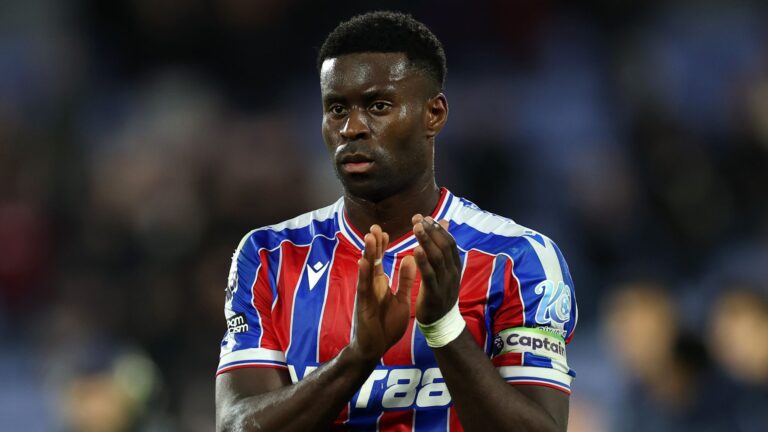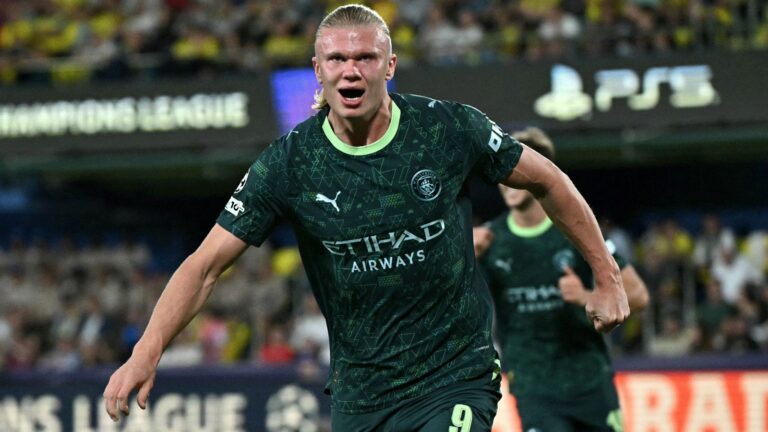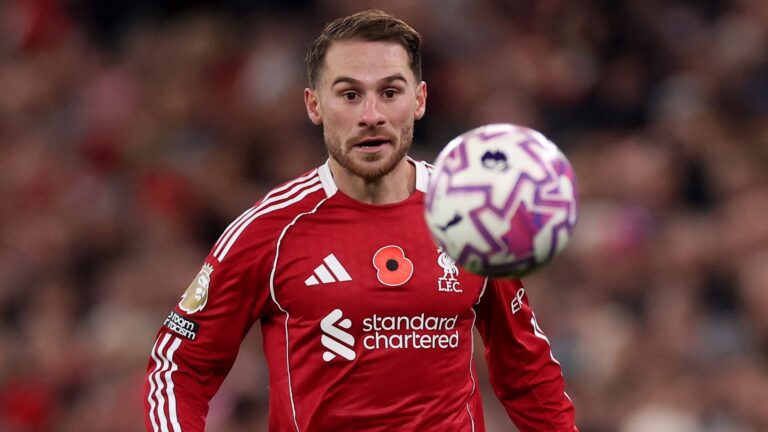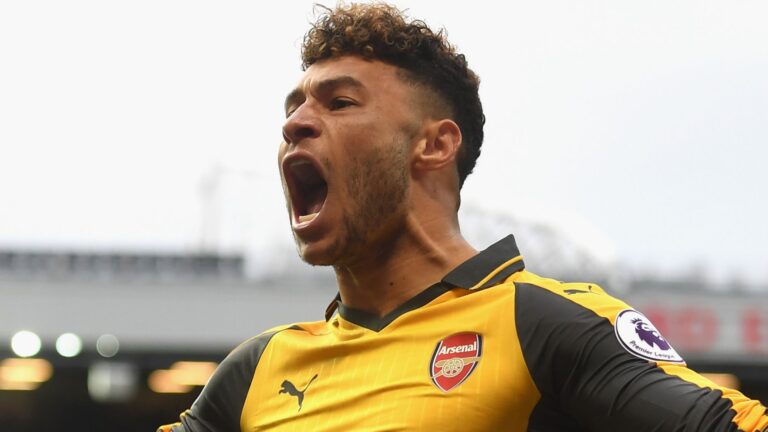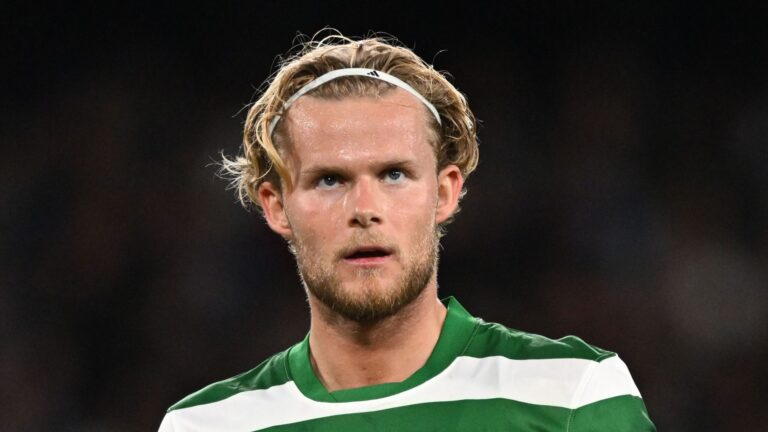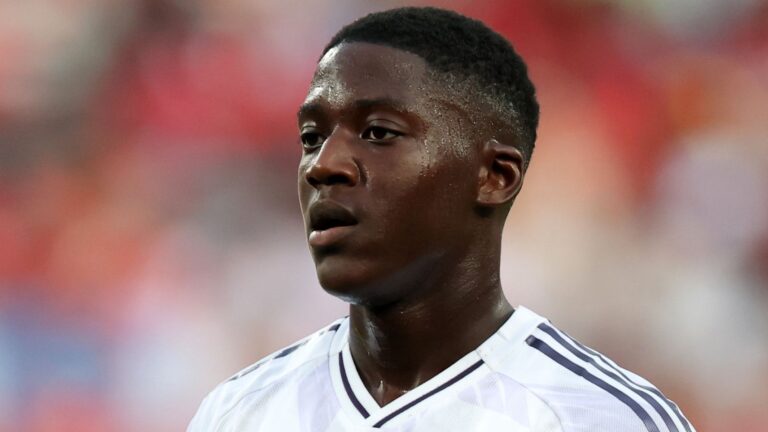Ollie Palmer’s Fresh Start: A Striker’s Journey from Wrexham Triumphs to Swindon Opportunities
In the ever-changing world of English football, Ollie Palmer has embarked on a new path, departing from Wrexham following a remarkable stint and diving into opportunities at Swindon Town. This transition underscores the fluid energy of the game, with athletes like Palmer propelling squads to new achievements and exemplifying the determination and drive that characterize competitive divisions including the Championship and League Two.
- Ollie Palmer departs Wrexham
- He joins forces with Swindon Town
- His association with the Welsh outfit lasted over three years



Ollie Palmer’s Departure Signals the End of a Thriving Wrexham Chapter
Wrexham has confirmed the conclusion of Ollie Palmer’s time with the team after an impactful stay of more than three years at The Racecourse Ground. Palmer integrated into the lineup in early 2022 during their National League efforts, rapidly emerging as an essential player who scored 46 goals in 156 appearances. His efforts were crucial in guiding the club through league advancements to the Championship, mirroring the club’s progressive momentum led by figures such as Ryan Reynolds and Rob McElhenney.
Exploring Palmer’s New Role at Swindon Town and Opportunities in League Two
Palmer has finalized his switch to Swindon Town on a two-year agreement, with ambitions to influence the team’s performance in League Two. Boasting 288 prior appearances in England’s fourth tier and 61 goals to his name, he offers substantial expertise to his latest squad. Swindon’s recent campaign ended on a high note with multiple decisive victories that kept them close to promotion contention, providing Palmer with an ideal setting to enhance his abilities and support their push for elevation.
Palmer Shares His Excitement About Teaming Up with Swindon
On Swindon Town’s official platform, Palmer conveyed his eagerness, remarking, “I’m excited to be part of a club with such prestige as Swindon. The defined objectives and enthusiasm here motivate me, and I’m determined to assist the team in rising up the table and competing for advancement. I’m looking forward to bonding with the squad, working alongside the coaching staff, and delivering for the fans at the County Ground.”
He added, “The coaching strategy for the club was incredibly persuasive. Swindon’s strong finish in the last season highlights the capabilities of this lineup, and I’m ready to add to that positive surge.”
Adapting Strategies for Wrexham Moving Forward Without Palmer
With Palmer’s exit, Wrexham is preparing for their upcoming clash against Millwall this weekend. In the Championship so far, the side has encountered difficulties, recording one draw and two defeats in the opening three games, yet latest insights suggest they’re prioritizing team enhancements by tapping into up-and-coming players to improve their efforts in future matches. This period represents a pivotal challenge for Wrexham as they strive to recover their momentum and claim their initial win of the campaign.
Wrexham AFC’s Separation from Ollie Palmer and Its Wider Impact
The choice by Wrexham AFC to end their partnership with forward Ollie Palmer represents a key development in the club’s transformation under the guidance of Hollywood personalities Ryan Reynolds and Rob McElhenney. This contract termination illustrates the fast-paced environment of transfers in the EFL and League Two, where astute handling of players is vital for creating a formidable lineup. Under Reynolds and McElhenney, Wrexham has enjoyed a blend of playing successes and increased publicity, with this action fitting into their overarching plan for club growth.
Examining Wrexham AFC’s Evolution Since the Ownership Change
From the moment Ryan Reynolds and Rob McElhenney acquired Wrexham AFC in 2021, the organization has undergone a dramatic revival. Their fame has drawn international focus to this Welsh team, enhancing supporter involvement and partnerships. The club’s progression from the National League to League Two has been driven by shrewd financial moves and notable acquisitions, though it requires difficult choices like contract terminations.
Palmer’s departure exemplifies this dedication to refining the roster for enduring achievements. Phrases such as “Wrexham AFC transfers” and “Ryan Reynolds football involvement” frequently appear in conversations about how celebrity leaders affect team operations. For example, Reynolds and McElhenney have highlighted their use of evidence-based methods and community feedback to refine the squad, positioning this as a deliberate strategy rather than an impulsive one.
Highlighting Ollie Palmer’s Key Role at the Club
When Ollie Palmer arrived at Wrexham AFC in 2021, he swiftly became a crowd pleaser due to his robust style and scoring talent. The British striker was instrumental in the club’s drive for promotion, delivering vital goals in critical games. His approach on the pitch captured the tenacity and resolve that Wrexham fans championed throughout their climb up the divisions.
Yet, as Wrexham pursues ongoing excellence in elevated leagues, elements like current form, age, and strategic compatibility become significant. The termination of Palmer’s contract may arise from the necessity to update the offensive line with fresher faces or individuals more aligned with League Two demands. This practice is widespread in the sport, with teams like Wrexham routinely reviewing agreements to match their long-term objectives.
Key Factors Influencing the Contract Termination Decision
The move to conclude Ollie Palmer’s association with Wrexham probably stems from a mix of economic, on-field, and tactical considerations. Reynolds and McElhenney have stressed the importance of establishing a viable structure, which entails managing expenses while acquiring players capable of future triumphs. Within EFL circles, such endings often happen when a player’s input no longer aligns with shifting team priorities or when fresh prospects emerge for everyone involved.
From an operational viewpoint, this decision might liberate resources for precise recruitment, such as dynamic attackers or defenders that complement Wrexham’s tactics. It’s a clear indication that in elite football, even beloved players like Palmer can encounter contract closures due to roster strategies, a frequent topic in “Wrexham AFC player departures” debates.
Advantages of Ending Player Contracts in the Football World
Terminating a player’s contract, as with Ollie Palmer, provides multiple advantages for organizations like Wrexham AFC. Primarily, it facilitates team renewal by introducing new players who bring vitality and expertise, which is especially useful in intense leagues demanding quick adjustments.
- Budgetary Adaptability: Terminating contracts enables teams to reallocate money toward better signings or youth programs, aiding in financial stability amid growing EFL expenses.
- Strategic Cohesion: This ensures the lineup matches the coach’s plans, which could enhance results and boost promotion prospects.
- New Paths for Players: For individuals like Palmer, it creates openings at other clubs, letting them explore new challenges and advance their careers dynamically.
In the context of Wrexham, Reynolds and McElhenney’s tactics show how these choices can uplift squad spirit and fan enthusiasm, converting potential drawbacks into pathways for further progress.
Helpful Advice for Football Teams and Supporters
For those involved as club executives, coaches, or loyal followers of Wrexham AFC’s story, consider these insights inspired by events like Palmer’s exit:
- Track Player Stats Closely: Employ data tools to monitor metrics such as scores, assists, and health issues, helping make informed contract choices and prevent unexpected issues.
- Maintain Fan Dialogue: Organizations should share updates on transfers transparently to build trust, similar to how Reynolds and McElhenney use social platforms.
- Prepare for Replacements: Keep a roster of potential additions on hand to ensure seamless changes and limit any performance dips.
- Manage Funds Prudently: Emphasize long-term budgeting, such as arranging release clauses, to navigate contract endings without fiscal stress.
These suggestions can assist teams in League Two and similar levels in handling player matters, simplifying processes akin to Wrexham’s separation from Palmer.
Lessons from Comparable Situations in Football
Analyzing other teams offers useful perspectives on contract terminations. Take, for instance, how Liverpool restructured by releasing experienced players to integrate emerging talents, much like Wrexham’s approach. In the EFL, outfits such as Portsmouth have leveraged player departures to strengthen their promotion efforts, proving that these shifts can yield favorable outcomes.
Additionally, clubs like Bradford City have handled numerous contract ends to preserve their local ethos. These instances demonstrate that, as with Ollie Palmer, prompt actions often lead to more robust teams and superior game-day performances, stressing the value of thoughtful planning in sports administration.
Personal Insights from Football Leadership Experiences
Based on shared stories and discussions from coaches and executives, the personal aspects of contract terminations come to light. Ryan Reynolds has addressed the emotional challenges in media appearances, explaining how he balances a player’s value against the club’s prospects. Likewise, past Wrexham leaders have talked about the difficulties of releasing core members, underlining the importance of straightforward communication to sustain group unity.
These observations reveal that although contract conclusions can be demanding, they frequently open doors to development, as evident in Wrexham’s journey with its prominent owners. By applying these lessons, teams can manage transitions with increased compassion and efficiency.
The Story Behind Wrexham AFC and Ollie Palmer’s Contract Termination
Background on Wrexham AFC and Its Celebrity Owners
Wrexham AFC has become one of the most talked-about football clubs in recent years, largely due to the influence of its high-profile owners, Ryan Reynolds and Rob McElhenney. Since taking over the club in 2021, these Hollywood stars have injected fresh energy, global attention, and significant investment into the team, helping it climb the ranks in English football. Reynolds, known for his roles in blockbuster films like Deadpool, and McElhenney, the creator of the hit TV show It’s Always Sunny in Philadelphia, have turned Wrexham into a viral sensation, blending entertainment with sports.
Their ownership has been a game-changer for Wrexham AFC, a club with a rich history dating back to 1872. Under their guidance, the team has seen improved performance, fan engagement, and even a documentary series on Disney+ that chronicles the club’s journey. This contract termination involving Ollie Palmer highlights how celebrity ownership can lead to big decisions in football management, as Reynolds and McElhenney prioritize long-term strategies for success.
Key aspects of their involvement include:
- Strategic investments in players and infrastructure to boost Wrexham AFC’s competitiveness.
- Building a strong community connection, with fan events and social media campaigns that keep the buzz alive.
- Navigating the challenges of football contract terminations to maintain team dynamics and performance.
Ollie Palmer’s Journey with Wrexham AFC
Ollie Palmer, a striker who joined Wrexham AFC in 2022, played a notable role in the team’s recent successes. Standing at an imposing 6’4″, Palmer brought physical presence and scoring prowess to the squad, becoming a fan favorite for his contributions on the pitch. During his tenure, he appeared in over 70 matches, netting crucial goals that helped Wrexham secure promotions and victories in key competitions.
Palmer’s time at Wrexham was marked by several highlights, including his role in the team’s promotion to the English Football League in the 2022-2023 season. His playing style, characterized by strong headers and relentless energy, aligned well with the club’s aggressive tactics under managers like Phil Parkinson. However, like many football careers, Palmer’s stint wasn’t without ups and downs, including injuries and fluctuating form that may have influenced the decision to part ways.
Here’s a quick breakdown of Ollie Palmer’s key stats and contributions at Wrexham AFC:
- Goals scored: Over 20 in all competitions, with several match-winning strikes.
- Assists and team play: Provided key passes that enhanced Wrexham’s attacking fluidity.
- Fan impact: His larger-than-life personality made him a staple in social media highlights and team merchandise.
Despite these achievements, contract negotiations and performance reviews can lead to changes, setting the stage for the recent termination finalized by Reynolds and McElhenney.
Details of the Contract Termination Process
The contract termination between Wrexham AFC and Ollie Palmer was officially finalized in late 2025, with owners Ryan Reynolds and Rob McElhenney playing a hands-on role in the decision. This move came after careful deliberations, reportedly involving performance evaluations, squad planning, and discussions with Palmer’s representatives. Football contract terminations like this one are common in the sport, but the involvement of celebrity owners added a layer of public interest and scrutiny.
Reynolds and McElhenney, known for their transparent communication style, likely weighed factors such as Palmer’s future career aspirations and the club’s evolving needs. Sources close to the club suggest that the termination was mutual, allowing Palmer to explore new opportunities while freeing up resources for Wrexham to strengthen their roster.
Reasons behind the contract termination might include:
- Squad restructuring: Wrexham AFC is aiming for higher divisions, potentially requiring younger or more versatile players.
- Financial considerations: Terminating contracts can help manage budgets, especially with the club’s investments in training facilities and youth programs.
- Player development: Palmer, at 32 years old, may be seeking a fresh start, while Wrexham focuses on long-term sustainability.
Official statements from Reynolds and McElhenney emphasized respect and gratitude, with Reynolds tweeting about appreciating Palmer’s “blood, sweat, and goals” for the club. This approach reflects the owners’ commitment to maintaining a positive club culture, even during challenging transitions like contract terminations in football.
Impact on Wrexham AFC’s Future and the Football Community
The departure of Ollie Palmer has sparked discussions about how Wrexham AFC will adapt moving forward under Reynolds and McElhenney’s leadership. With the club’s profile soaring, this contract termination could open doors for new signings and strategies, potentially attracting top talent eager to join a team backed by Hollywood stars.
Fans and analysts are watching closely to see how this affects team morale and performance in upcoming seasons. Wrexham’s success story, fueled by smart management and global appeal, serves as a model for other clubs dealing with player transitions.
Potential next steps for Wrexham AFC include:
- Recruitment focus: Targeting forwards with similar physical attributes to Palmer to maintain offensive strength.
- Community engagement: Using social media to keep fans updated, as Reynolds and McElhenney have done effectively.
- Broader implications: This event highlights trends in football contract terminations, where owner involvement can speed up decisions and influence team dynamics.
As Wrexham AFC continues to evolve, events like this underscore the excitement of following a club that’s rewriting the rules of the game. With keywords like Wrexham AFC contract termination and Ollie Palmer’s exit naturally woven in, this article aims to keep readers informed and engaged on the latest in football news.


